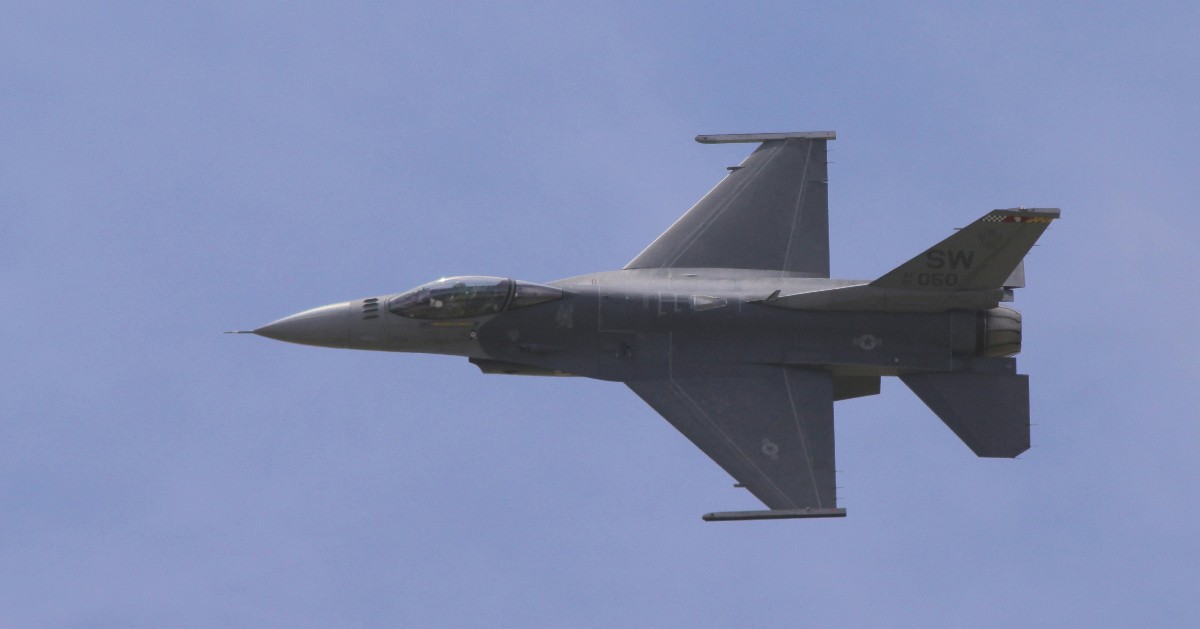Meme does not show crashed Ukrainian F-16 fighter jet

A number of social media users have shared a meme on Facebook and X (formerly Twitter) that implies a photo shows a crashed F-16 fighter jet belonging to the Ukrainian Air Force.
The image features two cartoon pilots with shocked looks on their faces superimposed over the wreck of a military plane with the Ukrainian coat of arms on its tail.
Many of the posts have the caption: “When you ask Ukrainian pilots where their F-16s are”, though there are some slight variations of this wording.
However, the meme is misleading as the plane featured in the image does not belong to the Ukrainian Air Force, and the crash took place prior to Ukraine taking delivery of such aircraft.
The original image of the fighter jet featured in the meme is actually of a United States Air Force F-16 which crashed into a warehouse in California in May 2019. The crash was the result of mechanical failure and the pilot successfully ejected and survived.
The Ukrainian coat of arms seen on the tail fin of the aircraft in the meme has been artificially added and does not appear in the original image.
Following the Russian invasion of Ukraine in February 2022, Ukrainian president Volodymyr Zelenskyy made a series of pleas to Nato members for help in bolstering its air defences.
Ukraine received the first delivery of around 65 F-16s (small, manoeuvrable fighter jets frequently used in combat) reportedly pledged by Nato countries in August 2024.
Soon afterwards, one of the newly delivered planes crashed during a Russian missile attack, killing the pilot. The cause of the crash has not yet been revealed but a US official reportedly said it was not thought to be the direct result of enemy fire.
We’ve written extensively about miscaptioned and faked images and videos falsely claiming to show events in or connected to Ukraine since the Russian invasion in 2022.
Misleading images and videos are some of the most common kinds of misinformation we see online, but they can sometimes be hard to spot. It’s always worth checking if social media images and videos show what the post says they do before you share them. You can find information on how to do this in our guide on spotting misleading images.


